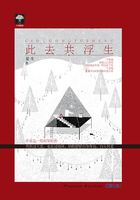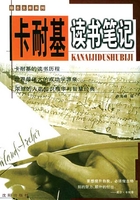Those ancient Romans at these holy days, which were a mixture of devotion and debauchery, had a custom of reproaching each other with their faults in a sort of extempore poetry, or rather of tunable hobbling verse, and they answered in the same kind of gross raillery--their wit and their music being of a piece. The Grecians, says Casaubon, had formerly done the same in the persons of their petulant Satyrs; but I am afraid he mistakes the matter, and confounds the singing and dancing of the Satyrs with the rustical entertainments of the first Romans. The reason of my opinion is this: that Casaubon finding little light from antiquity of these beginnings of poetry amongst the Grecians, but only these representations of Satyrs who carried canisters and cornucopias full of several fruits in their hands, and danced with them at their public feasts, and afterwards reading Horace, who makes mention of his homely Romans jesting at one another in the same kind of solemnities, might suppose those wanton Satyrs did the same; and especially because Horace possibly might seem to him to have shown the original of all poetry in general (including the Grecians as well as Romans), though it is plainly otherwise that he only described the beginning and first rudiments of poetry in his own country. The verses are these, which he cites from the First Epistle of the Second Book, which was written to Augustus:-
"Agricolae prisci, fortes, parvoque beati, Condita post frumenta, levantes tempore festo Corpus, et ipsum animum spe finis dura ferentem, Cum sociis operum, et pueris, et conjuge fida, Tellurem porco, Silvanum lacte piabant; Floribus et vino Genium memorem brevis aevi.
Fescennina per hunc inventa licentia morem Versibus alternis opprobria rustica fudit."
"Our brawny clowns of old, who turned the soil, Content with little, and inured to toil, At harvest-home, with mirth and country cheer, Restored their bodies for another year, Refreshed their spirits, and renewed their hope Of such a future feast and future crop.
Then with their fellow-joggers of the ploughs, Their little children, and their faithful spouse, A sow they slew to Vesta's deity, And kindly milk, Silvanus, poured to thee.
With flowers and wine their Genius they adored; A short life and a merry was the word.
From flowing cups defaming rhymes ensue, And at each other homely taunts they threw."
Yet since it is a hard conjecture that so great a man as Casaubon should misapply what Horace writ concerning ancient Rome to the ceremonies and manners of ancient Greece, I will not insist on this opinion, but rather judge in general that since all poetry had its original from religion, that of the Grecians and Rome had the same beginning. Both were invented at festivals of thanksgiving, and both were prosecuted with mirth and raillery and rudiments of verses; amongst the Greeks by those who represented Satyrs, and amongst the Romans by real clowns.
For, indeed, when I am reading Casaubon on these two subjects methinks I hear the same story told twice over with very little alteration. Of which Dacier, taking notice in his interpretation of the Latin verses which I have translated, says plainly that the beginning of poetry was the same, with a small variety, in both countries, and that the mother of it in all nations was devotion.
But what is yet more wonderful, that most learned critic takes notice also, in his illustrations on the First Epistle of the Second Book, that as the poetry of the Romans and that of the Grecians had the same beginning at feasts and thanksgiving (as it has been observed), and the old comedy of the Greeks (which was invective) and the satire of the Romans (which was of the same nature) were begun on the very same occasion, so the fortune of both in process of time was just the same--the old comedy of the Grecians was forbidden for its too much licence in exposing of particular persons, and the rude satire of the Romans was also punished by a law of the Decemviri, as Horace tells us in these words:-
"Libertasque recurrentes accepta per annos Lusit amabiliter; donec jam saevus apertam In rabiem verti caepit jocus, et per honestas Ire domos impune minax: doluere cruento Dente lacessiti; fuit intactis quoque cura Conditione super communi: quinetiam lex, Paenaque lata, malo quae nollet carmine quenquam Describi: vertere modum, formidine fustis Ad benedicendum delectandumque redacti."
The law of the Decemviri was this: Siquis occentassit malum carmen, sive condidissit, quod infamiam faxit, flagitiumve alteri, capital esto. A strange likeness, and barely possible; but the critics being all of the same opinion, it becomes me to be silent and to submit to better judgments than my own.
But to return to the Grecians, from whose satiric dramas the elder Scaliger and Heinsius will have the Roman satire to proceed; I am to take a view of them first, and see if there be any such descent from them as those authors have pretended.
Thespis, or whoever he were that invented tragedy (for authors differ), mingled with them a chorus and dances of Satyrs which had before been used in the celebration of their festivals, and there they were ever afterwards retained. The character of them was also kept, which was mirth and wantonness; and this was given, I suppose, to the folly of the common audience, who soon grow weary of good sense, and, as we daily see in our own age and country, are apt to forsake poetry, and still ready to return to buffoonery and farce.
From hence it came that in the Olympic Games, where the poets contended for four prizes, the satiric tragedy was the last of them, for in the rest the Satyrs were excluded from the chorus. Amongst the plays of Euripides which are yet remaining, there is one of these satirics, which is called The Cyclops, in which we may see the nature of those poems, and from thence conclude what likeness they have to the Roman satire.















